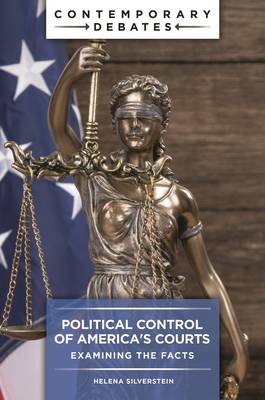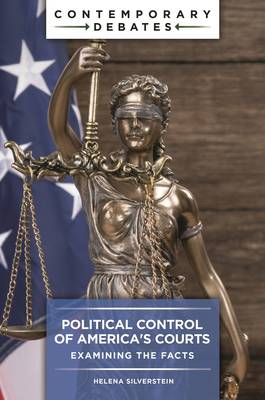
- Retrait gratuit dans votre magasin Club
- 7.000.000 titres dans notre catalogue
- Payer en toute sécurité
- Toujours un magasin près de chez vous
- Retrait gratuit dans votre magasin Club
- 7.000.0000 titres dans notre catalogue
- Payer en toute sécurité
- Toujours un magasin près de chez vous
Description
This volume explores the many ways in which politics shapes the allegedly nonpartisan judicial system in America, ranging from how judges are selected to the bench to how they rule when they get there.
Each title in the Contemporary Debates series examines the veracity of controversial claims or beliefs surrounding a major political/cultural issue in the United States. Each book gives readers a clear and unbiased understanding of current high-interest issues by informing them about falsehoods, half-truths, and misconceptions-and confirming the factual validity of other assertions-that have gained traction in America's cultural and political discourse. This volume in the series provides a deeply researched and even-handed account of the relationship between America's judicial branch-which is supposed to view law through a nonpartisan lens-and the sometimes poisonous partisanship that is such a notorious factor in the nation's other two branches of government. Is political combat over judicial nominations worse than ever before? What impact is the politicization of the courts having on public faith in the legitimacy of the courts and our wider political system? Was former Supreme Court justice Sandra Day right when she asserted that "judicial independence is a bedrock principle of our court system, and we are losing it"? This work will provide insights into all these questions and more.Spécifications
Parties prenantes
- Auteur(s) :
- Editeur:
Contenu
- Nombre de pages :
- 224
- Langue:
- Anglais
- Collection :
Caractéristiques
- EAN:
- 9781440878053
- Date de parution :
- 18-01-23
- Format:
- Livre relié
- Format numérique:
- Genaaid
- Dimensions :
- 156 mm x 236 mm
- Poids :
- 1043 g

Les avis
Nous publions uniquement les avis qui respectent les conditions requises. Consultez nos conditions pour les avis.






